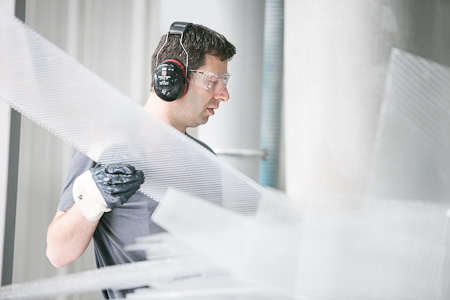

Recycling
Saving resources with plastic materials cycles
Our aim is to reuse production waste from industry and trade as long as possible in sustainable cycles. The longer we do, the more we save natural resources, which has positive effects for society and the environment.
Economical and ecological recycling begins with recovering high-grade secondary raw materials, which can be returned to the material cycle. This is based on activities like recording, collecting, logistically assembling, sorting and processing the plastic residues.

Optimal reuse
When the material has been cleaned and sorted, suitable processing methods must be identified and assigned – under ecological and economical aspects. We always set the right priorities and choose the best form of material recycling: reusing the material, recycling the raw material or recovering the energy.
(1) Material reuse
The plastic-processing industry uses many generically pure reground plastics as raw materials. Innovative applications and product uses for mixed plastics are also part of the Krall scope of services.
(2) Recycling the raw material
Plastic residues are cracked to monomers so that they can be used for the production of new plastics – or a product oil is made by means of thermolysis (oiling).
(3) Energy recovery
If it does not make sense to recycle plastics on the material level, the contained energy is exploited and is used in the cement or steel industry – thus saving the valuable resource petroleum.